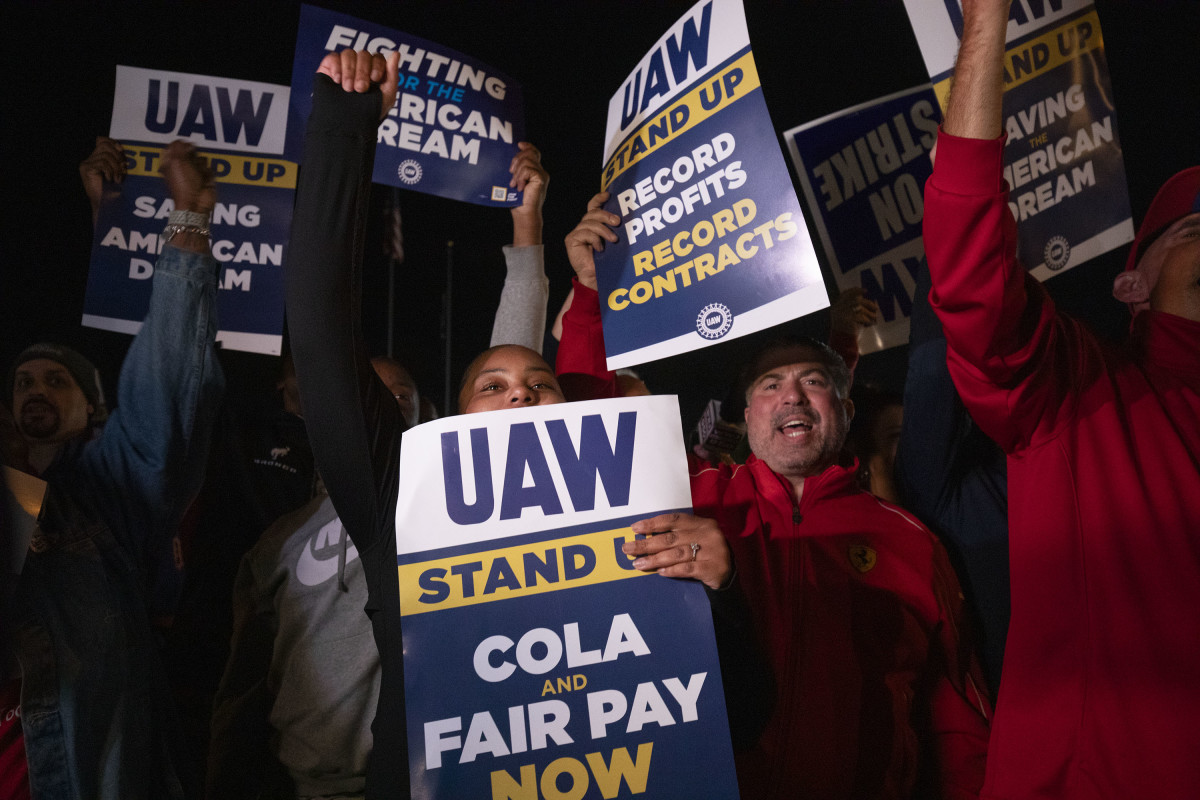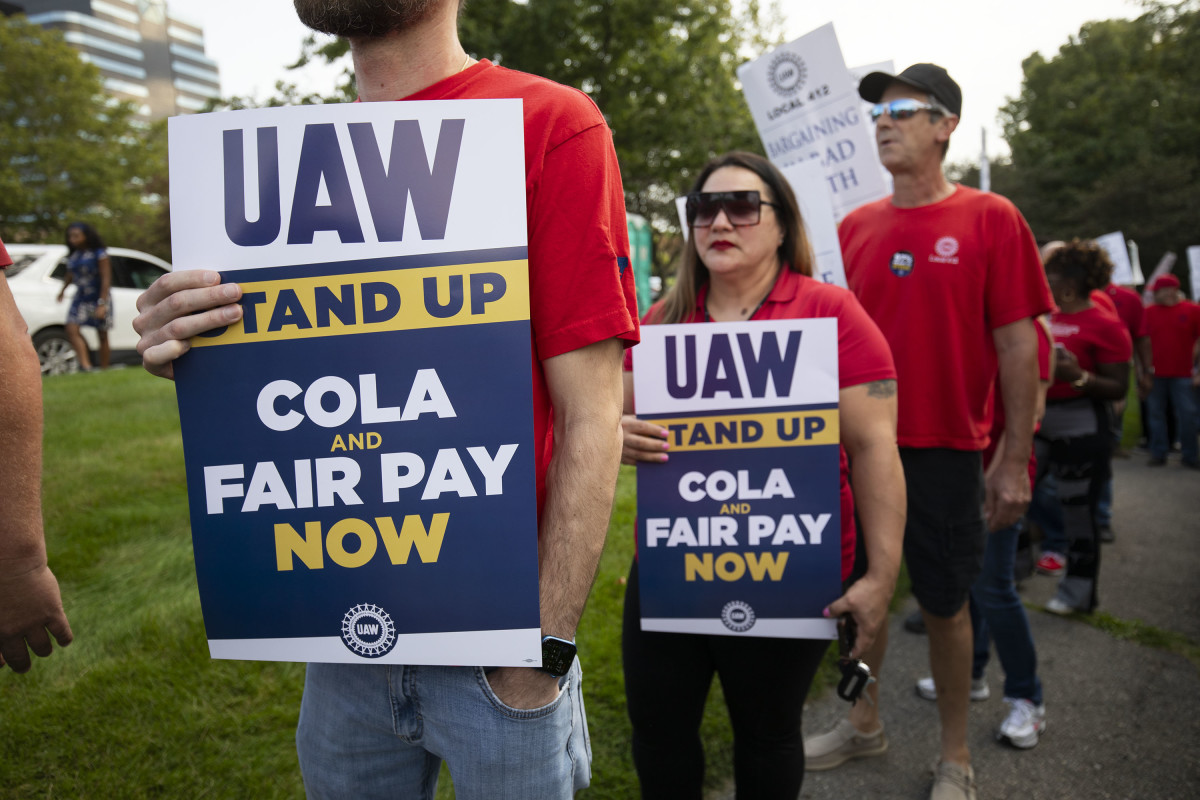
The United Auto Workers union is expanding its current series of "stand up" strikes Friday at noon, after the union and the Big Three automakers (General Motors (GM) -), Stellantis (STLA) -) and Ford (F) -)) failed to reach a last-minute deal. Union president Shawn Fain said Friday morning that "real progress" has been made at Ford, including cost of living adjustments and the flattening of employment tiers. But he said that there is still lots of work to do. Ford, Fain said, is "showing that they're serious. At GM and Stellantis, it's a different story."
Fain announced that the UAW will not expand its strikes against Ford; he called, however, for all parts distribution facilities for both GM and Stellantis to stand up and strike. The strikes will now impact 38 locations across 20 states and all nine regions of the UAW.
The union is seeking 40% wage increases, cost of living adjustments, profit sharing, expanded retirement benefits and a 32-hour work week. Automakers have proposed 20% wage increases over a four-year period and haven't budged on several of the union's non-wage-related demands.
Related: Former Ford CEO warns UAW members its leader is 'playing a dangerous game'
The union, which represents around 150,000 auto workers, began a series of rolling strikes Sept. 15. Currently, around 10% of union workers are on strike, a number that could soon spike.
GM president Mark Reuss, in an op-ed in the Detroit Free Press Sept. 20, said that the union's wage demand is excessive.
“We have delivered a record offer. That is a fact. It rightly rewards our team members, while positioning the company for success in the future," Reuss wrote. "Often in these situations, the clouds of rhetoric can obscure reality.”
With the union and automakers far apart, analysts, including Wedbush's Dan Ives, have picked out Tesla (TSLA) -), which employs non-union workers, as the ultimate winner of the conflict. An ongoing strike, Ives said, will hinder automakers' electric vehicle plans; a deal could increase costs to the point that Tesla becomes cemented as the true winner of the EV price war.

Former Ford CEO Mark Fields said that the duration of the strikes will depend on the union's flexibility in some of its demands.
"It's going to come down to how hard the UAW wants to push on these non-wage demands. Shorter work week, retiree healthcare, those are busting the balance sheets and would add trillions of dollars to the cost structure of the automakers," Fields told CNBC. "They just cannot afford that because they have to compete with Tesla."
In the wake of several recent union wins — the UPS and Teamsters deal, among them — and several prominent ongoing strikes, Fields thinks that the UAW is overplaying its hand.
"Workers in these unions are saying 'hey, we have some momentum, we have other unions that have gotten some very big gains, now it's our turn, because one, let's take advantage of that momentum, and two, we as our union have to prove that we can deliver for our members.'"
The UAW, according to a leaked message from the union's communications director Jonah Furman, is prepared to keep the pressure on for months.
"(I)f we can keep them wounded for months they don't know what to do. The beauty is we've laid it all out in the public and they're still helpless to stop it," Furman, first reported by the Detroit News, said. "And creating compression points of national attention for them to do the right thing is way different than just waiting for a month for the next offer."
Action Alerts PLUS offers expert portfolio guidance to help you make informed investing decisions. Sign up now.







